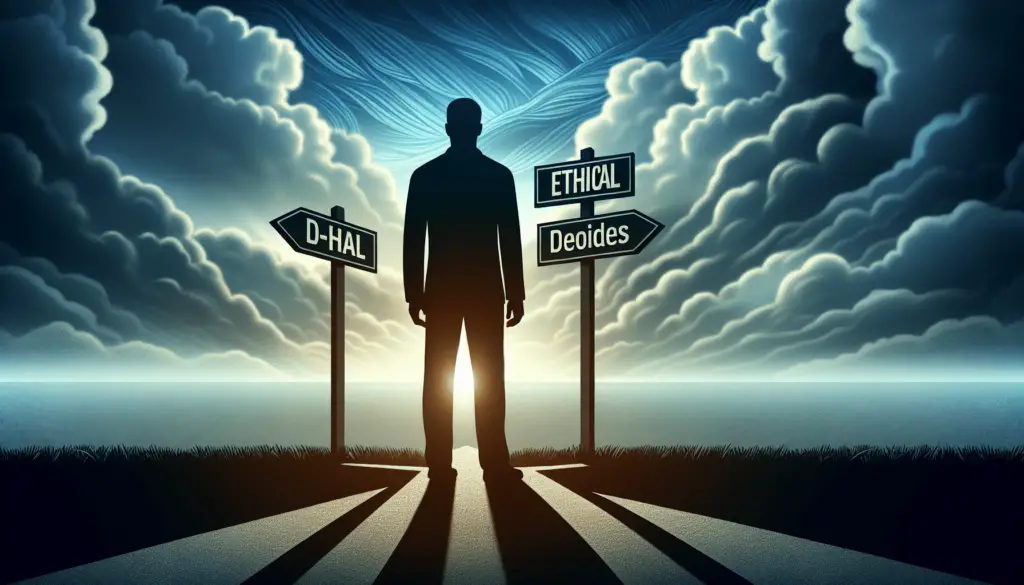The Ethics Of Survival: Decision-Making In Life-or-Death Situations
Have you ever wondered how you would react in a life-or-death situation? When faced with critical decisions, your ethics and values play a significant role in determining your course of action. In this article, we will explore the ethical considerations involved in decision-making during emergencies and crises.
Understanding Ethical Dilemmas
Imagine you are stranded on a deserted island with limited resources and no means of communication. You are faced with the dilemma of whether to focus on your survival at all costs or consider the well-being of others in your group. Ethical dilemmas arise when you are forced to choose between conflicting moral principles, and finding a balance between self-preservation and altruism can be challenging.
Balancing Self-Interest and Altruism
In life-or-death situations, it is natural to prioritize your own survival above all else. However, ethical considerations also encompass the welfare of others, especially in a group setting. Striking a balance between self-interest and altruism requires careful deliberation and empathy towards your fellow survivors. Consider how your decisions may impact the group as a whole before acting in your self-interest.
Moral Responsibilities in Emergencies
During emergencies, individuals are often faced with difficult moral responsibilities that may conflict with their personal beliefs. For example, you may be compelled to make decisions that go against your principles in order to ensure the survival of yourself and others. Understanding your moral responsibilities in such situations is essential for making ethical choices that align with your values.

Ethical Decision-Making Frameworks
Ethical decision-making frameworks provide a structured approach to analyzing moral dilemmas and guiding your actions in life-or-death situations. Utilizing frameworks such as the Utilitarian approach, which focuses on maximizing the overall well-being of the group, or the Deontological approach, which emphasizes following moral rules, can help you navigate complex ethical dilemmas with clarity and purpose.
The Trolley Problem
The Trolley Problem is a classic ethical dilemma that tests one’s moral intuitions in life-or-death situations. Imagine you are standing next to a lever that can divert a runaway trolley onto a track where it will only harm one person instead of five. Would you pull the lever to save five lives at the cost of one? This scenario presents a moral conflict between the utilitarian principle of maximizing overall welfare and the deontological principle of not causing harm to others.
Utilitarianism vs. Deontology
Utilitarianism and Deontology are two prominent ethical theories that offer contrasting perspectives on decision-making in emergencies. Utilitarianism prioritizes the greatest good for the greatest number, while Deontology emphasizes adherence to moral principles and duties. Understanding the differences between these frameworks can help you evaluate the ethical implications of your choices and make informed decisions in life-or-death situations.

Cultural and Religious Influences
Cultural and religious beliefs can significantly impact ethical decision-making in emergencies. Different cultures may have varying norms and values that influence how individuals prioritize self-interest versus collective well-being. Religious teachings may also provide moral guidance on how to navigate difficult situations and uphold ethical principles. Being aware of these cultural and religious influences can help you better understand the ethical considerations at play in diverse contexts.
Psychological Factors in Decision-Making
Psychological factors such as stress, fear, and cognitive biases can influence your decision-making process in life-or-death situations. When under duress, individuals may experience heightened emotional responses that cloud their judgment and impair their ability to make rational choices. Recognizing these psychological factors and actively managing them can improve your decision-making skills and enhance your ethical judgment in emergencies.
Role of Leadership in Crisis Situations
In crisis situations, leadership plays a crucial role in guiding ethical decision-making and fostering cooperation among survivors. A strong leader can provide direction, promote unity, and uphold ethical values that prioritize the well-being of the group. Effective communication, empathy, and decision-making skills are essential qualities for leaders to navigate emergencies and lead their team towards survival.
Importance of Communication and Collaboration
Communication and collaboration are key components of ethical decision-making in life-or-death situations. By openly discussing ethical dilemmas, sharing perspectives, and collaboratively finding solutions, survivors can work together towards common goals and make informed choices that benefit the whole group. Building trust, fostering teamwork, and valuing diverse viewpoints are essential for effective communication and collaboration in crises.
Moral Courage and Integrity
Moral courage and integrity are essential qualities that guide individuals through challenging ethical decisions in emergencies. By standing up for what is right, even in the face of adversity, you demonstrate moral courage and uphold your ethical principles. Integrity involves consistency in your beliefs and actions, even when faced with difficult choices. Cultivating moral courage and integrity can strengthen your ethical resolve and enable you to make principled decisions in life-or-death situations.
Reflection and Continuous Improvement
Reflection and continuous improvement are vital aspects of ethical decision-making in emergencies. By reflecting on past decisions, evaluating their outcomes, and learning from your experiences, you can enhance your ethical judgment and refine your decision-making skills. Continuous self-assessment, feedback from others, and ongoing growth are essential for developing your ethical reasoning and becoming a more effective decision-maker in critical situations.
Conclusion
The ethics of survival encompass a complex interplay of individual values, moral principles, and external factors that shape decision-making in life-or-death situations. By understanding ethical dilemmas, balancing self-interest and altruism, utilizing decision-making frameworks, and considering cultural, psychological, and leadership factors, you can navigate emergencies with clarity, integrity, and compassion. Remember that ethical decision-making is a continuous learning process that requires reflection, courage, and a commitment to upholding your values in times of crisis.
